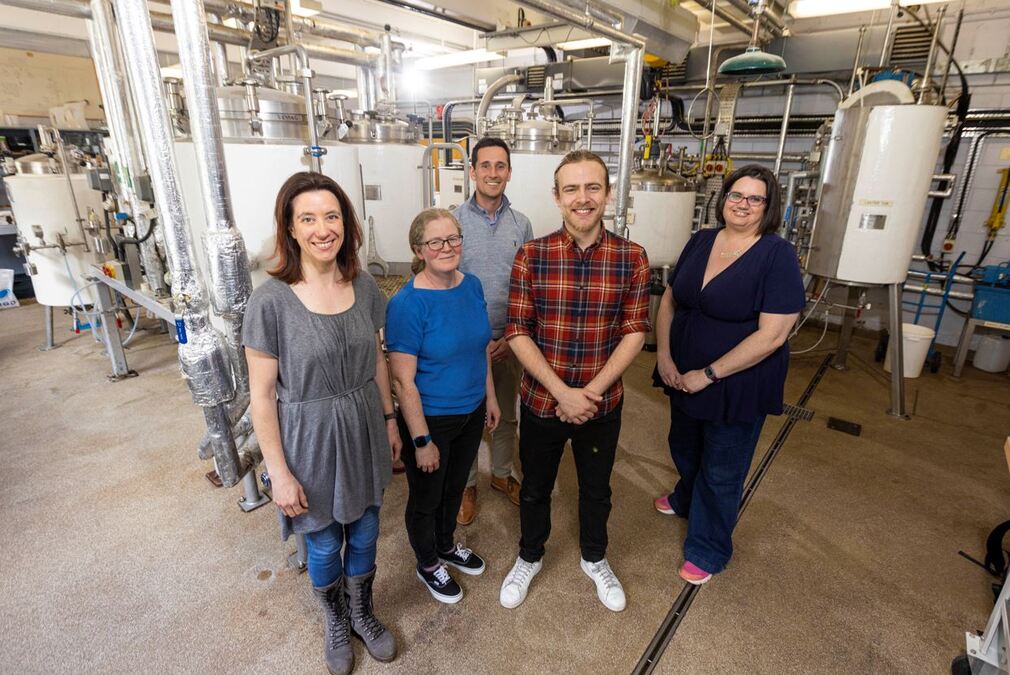Published:

The company behind Ardgowan Distillery has partnered with Heriot-Watt University's International Centre for Brewing and Distilling (ICBD) and engineering provider Briggs of Burton to explore new carbon reducing technologies.
Close to 500,000 tonnes of carbon dioxide (CO2) is produced by Scottish malt and grain distilleries and breweries every year. Whisky washbacks, used in distilleries as fermentation vessels, are generally fitted with CO2 extractors but this CO2 is rarely collected. The high costs and multiple challenges involved in using existing technology makes it difficult for smaller companies to use.
Ardgowan is scheduled to open its new distillery in 2024. Through use of energy efficient technologies and operations, it aims to achieve carbon-neutral operation ahead of the Scotch Whisky Association's 2030 deadline, with the intention of eventually becoming net negative for production CO2.
Realising these goals with current technologies amidst the volatile energy market presents numerous barriers. Every year, Ardgowan will produce 755,000 kg of CO2 from fermentation, with plans already in place to use proven technologies from Briggs of Burton including high temperature heat pumps to drive down energy use.
Heriot-Watt's expertise across engineering and distilled spirits will help explore and validate a wider range of carbon reduction technologies. The project is designed to overlap with MSc Brewing and Distilling projects at the University, which will extend the range of strategies explored and provide some facts for the industry on the various routes available to them, regardless of scale.
Dr Jessica Skelton from Ardgowan Distillery Company Ltd, explains: “The major industry players have the scale and resources to achieve their sustainability objectives. However, this research is so vital because it will provide practical guidance and technologies at a scale that's within the reach of the many independent companies looking to capture and reuse biogenic CO2. It could also support companies in other markets. Whisky producers in Canada, USA and Japan often look to the Scotch whisky industry as leaders in production and operational change.
“Many manufacturing environmental assessments overlook biogenic CO2. As a result, these reports fail to consider the by-product's potential. Our goal is to assess the production, capture, and potential uses of CO2 produced at our new 1 million litre per annum Scotch malt whisky distillery, finding new, sustainable uses that can be applied here and at other Scottish and international distilleries.”
Dr Dawn Maskell, Head of the International Centre for Brewing and Distilling (ICBD) at Heriot-Watt University commented: “This project provides both leadership and practical solutions for distillers, brewers, and other beverage manufacturers as they strive to address their net zero challenges. Through this research, we'll be creating suitable technologies for the wider industry, especially those that operate on a smaller scale. Current systems can be less economical and challenging to implement and we look forward to changing that.”
Dr Scott Davies, Head of Marketing at Briggs of Burton, said: “Both Ardgowan and Briggs of Burton will greatly benefit from research conducted by Heriot-Watt University, providing an independent perspective and broader scope when identifying opportunities across the overall malt whisky production process and its supply chain. The Ardgowan Distillery is being designed to accept process developments through its modular construction. This means research conducted through this partnership can be directly adopted at the distillery, enabling Ardgowan to continuously assess and seek to reduce its carbon impact from the outset. As a Heriot-Watt alumni, it's a great opportunity to help give back to the next generation of brewing and distilling engineers and scientists.”
Scott Bradley, Head of Business Development and Partnerships at Heriot-Watt University said: “Research into biogenic CO2 allows new applications to be explored from an academic perspective, guided by end-users Ardgowan Distillery, in partnership with technology provider Briggs of Burton. Our business development team is experienced at facilitating partnerships of this type, matching the right expertise to an industry challenge, and presenting solutions that drive economic and environmental benefits with potential for global impact.
“Collaborations like this demonstrate our institution's ongoing commitment to working closely with industry to find sustainable solutions in the wake of COP26. We look forward to supporting Ardgowan's carbon negative ambitions but also creating benefit through research for the wider industry in Scotland and abroad. This partnership will create a raft of new learning and innovation opportunities for our students, helping to shape the next generation of brewers and distillers.”
The research is funded through the Food and Drink Net Zero Challenge fund.